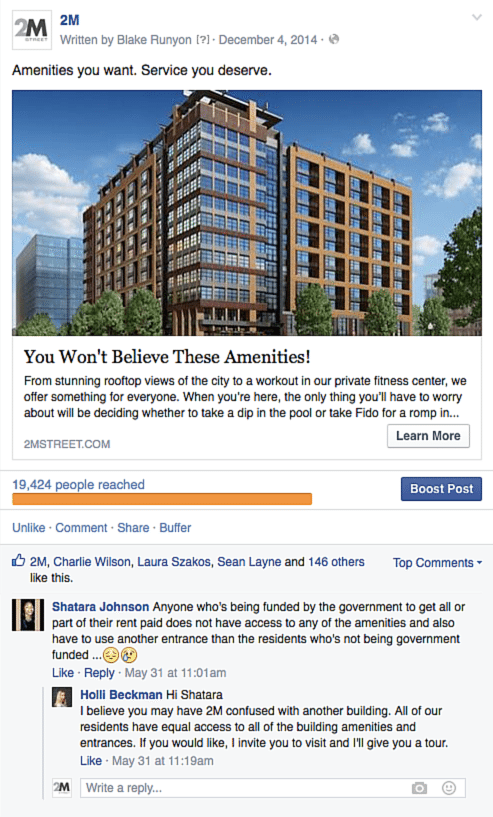If you build a decent presence on social media, you have them….
The trolls, the bullies, the haters and the consistent mean tweeters. They are impossible to avoid. Old common knowledge in our industry was to respond to each and every negative review. Nowadays with so many channels and so much nonsense, that approach has to be modified. First, because some attacks and comments don’t deserve a response. Second, because getting in an online tête-à-tête isn’t going to improve your image. This is key. When responding to any comments online, there should only be two objectives:
1. Fix the Problem
2. Maintain {or improve} your company’s image (clarify facts, highlight the positive)
If responding won’t do those two things, don’t bother.
You all are pros and already know how to respond to reviews, but for the sake of sharing, this is my methodology.
Short – Don’t give the attacker too many words to respond/react to, keep it short and simple.
Informative – Use straight information in neutral terms.
Polite – Try to remove the snark and exasperation from your tone; take it a step further and be friendly {when in doubt pretend you’re responding to your grandma}.
Precise—This is how we are fixing it.
And when you are done crafting the perfect response, ‘SIPP’ some wine 😉
As the voice of your brand, responses should demonstrate the same thoughtfulness, attention to detail and professionalism you provide on property….and in your company’s messaging.
This is not the place for stiff formality, marketing babble or long-winded explanations. Show appreciation for feedback and a willingness to improve by simply thanking the reviewer, apologizing, and clearly stating how you’re following up.
We are lucky enough in this day and age that people can see through obvious hate and bias. We are also lucky that writing reviews and ratings has become commonplace for both positive and negative experiences. Often, even if you did royally screw up someone’s move-in, you have at the very least provided decent experiences for the five previous move-ins. In the end it will all balance out in the reviews.
Sometimes, you get a review or post that is just filled with outright hatred, doesn’t even actually apply to your business practices or isn’t something you can change {ever had someone complain about the width of your sidewalks?}…in these cases a little more in depth analysis of the situation is required.
When to ignore the ignorance?
How to Identify a Troll
You can spot these guys from a mile away. They are the one’s posting as anonymous or with a pseudonym. Typically, they’re the ones attacking your staff by name, but without any actual examples of wrongdoing. The main tool of a troll is accusation. They will twist your words against you and are truly only interested in creating arguments. They have no interest in bettering your neighborhood, business, or business practices. There’s no winning with a troll because they aren’t looking for a solution. The best advice to defeat a troll is to simply ignore them. If they have attacked a team member, back your team member without actually addressing the troll. If they are abusive, block them. The end.
How to Identify a Hater
Unlike a troll, you probably know or ‘know of’ your hater. It can be an ex-employee, a disgruntled resident or someone from your personal life creeping into your professional world. It’s tougher dealing with a hater because they know [some] things about you and your business and seem to take pleasure in airing dirty laundry in the public eye. Their human connection is created by spewing sarcasm, criticizing and judging others. While haters are sometimes passive aggressive, they can just as easily go on the offensive. If they start commenting on your social media posts or mentioning you in theirs…you have a hater. If they start replying to every review response you post…you have a hater.
The first step in dealing with haters is to remember it’s about them, not you. They are dealing with something in their life and by making you the bad guy, they don’t have to look inward. That being said, there is typically some truth at the heart of a hater’s outburst. Remember, it is their perception of a situation…so while you may see it completely different than they do, if there is some action you can take, do it. If this is the 4th time their stove has broken and they write in a review that it’s the 10th time…so what?!? Their stove has broken FOUR TIMES.
Imagine coming home after a day of work and sitting in traffic with two hungry kids in the car, then getting home, trying to cook dinner and the stove is broken…AGAIN. Get that resident a new stove! Swap it out with your model stove! Who cares. Just do something. There’s no need to publicly correct their misstatement of fact. That does not maintain your image or fix the situation {in fact this just makes you look like more of a jerk…one reason hyperbole is a hater’s go to tool}. Just tell them what you are going to do to fix it and follow through. If there isn’t anything obvious to fix, you have two choices. Invite them to chat or let them continue to spin. If they are posting a bunch of nonsense on their own social media channels…let them spell out their crazy for the world to see. You don’t need to play Captain Obvious and point it out.
How to Identify an Opportunity
Some residents have a legitimate problem that was handled poorly…or just not perfectly. ANYTIME that is the case, turn it into an opportunity to learn. What could you and your team have done better? What can you do going forward to ensure the same mistakes are not repeated? What can you do to salvage the relationship? Our policy is to go above and beyond. Resident says the $20 bath mat was ruined by the maintenance tech’s muddy boots? Give them a Target gift card for $50…and NO DO NOT ask for a receipt. Is $50 really too much to spend on maintaining the goodwill of your resident…and their friends…and their online reach?
Are they misinformed about your community policies/offerings/pricing? Clarify. Politely. Offer personal assistance.
Look at the comment or review. Is it from a customer? Do they have something that needs to be fixed/addressed? Get on that! ACTNAP {As Close To Now As Possible}!
Were they a potential customer who had a poor experience? Apologize. Tell them what actions you’ve taken as a result of their review.
A closing note: if you know you or your business is a high target {AKA everyone in the multifamily business} it makes the most sense to be building your positive image each time you have the opportunity. Highlight your awesome team members and customers frequently. Doing some awesome charity event as a company or as individuals? Talk about it. Celebrating the good things in life does two things: it makes you human and it makes it a hell of a lot harder to vilify you and your company. This is the other side of reputation management…it doesn’t always have to be reactive. There’s plenty of proactive maneuvers to keep you ahead of the haters. We talk more about that here.
And one final, final word, remember: don’t be a hater yourself, and always assume that people are good until proven otherwise.



